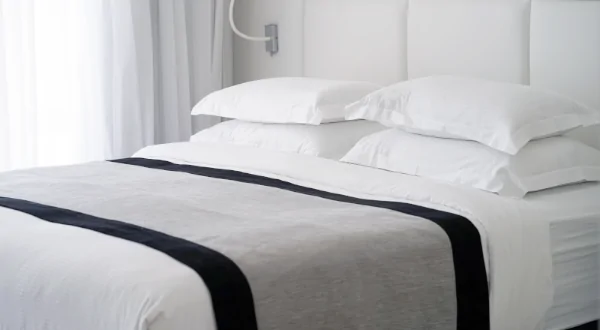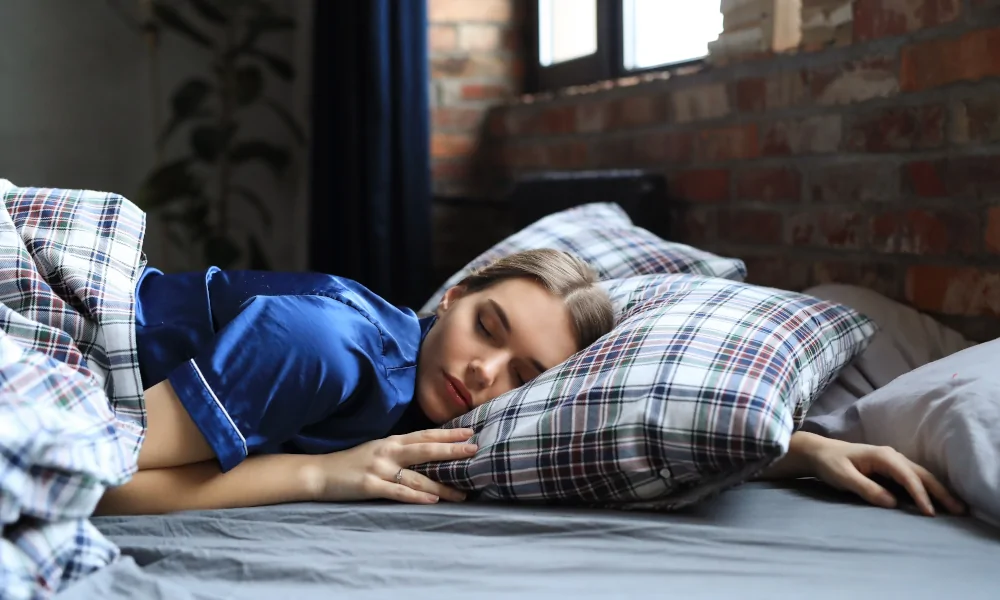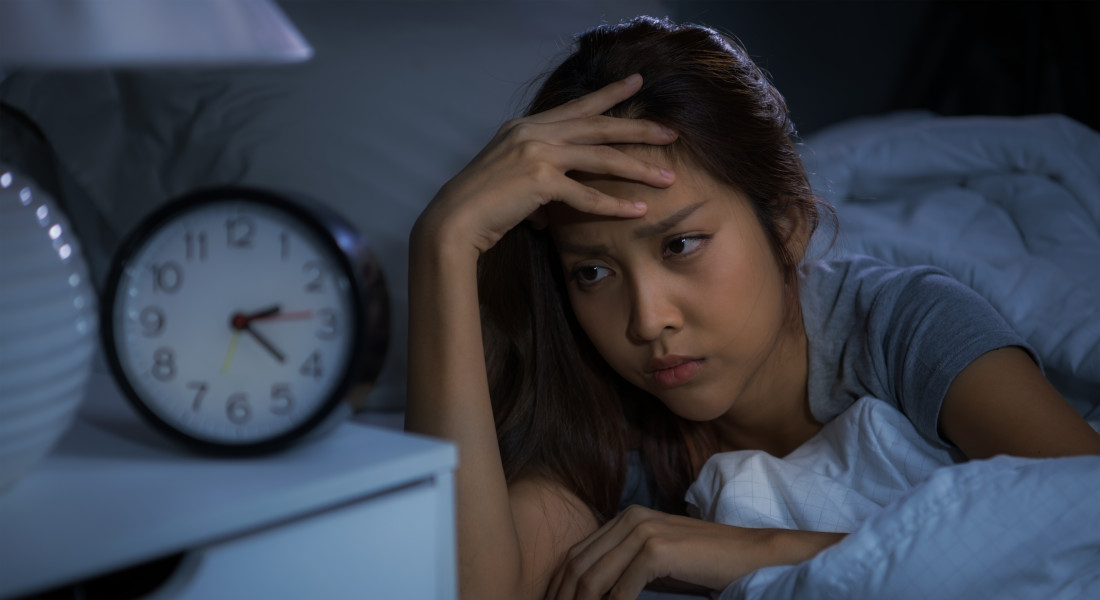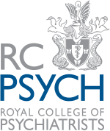Anxiety Treatment
Feeling overwhelmed, restless, or constantly on edge? Does anxiety interfere with your ability to work, study and enjoy daily life, making even small tasks feel daunting? Maybe you’ve noticed your heart racing, your thoughts spiralling, or you are struggling with regular sleepless nights? You are not alone.
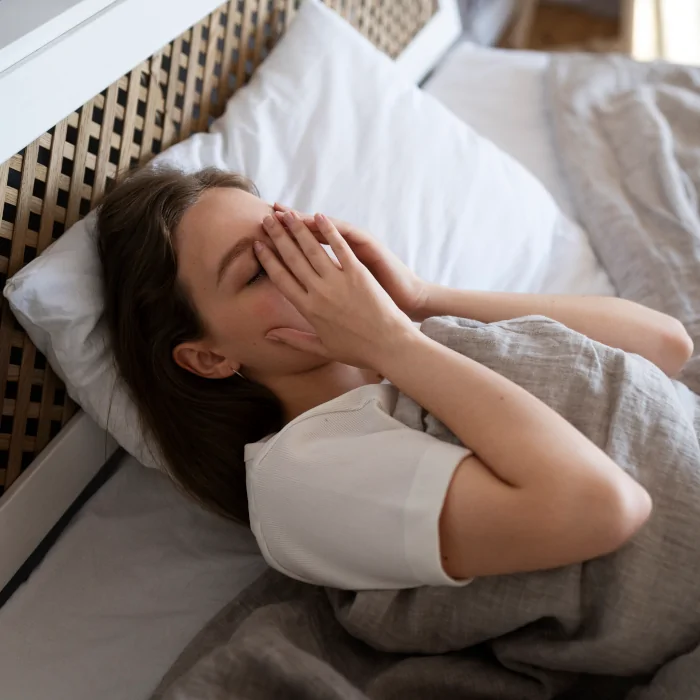
Anxiety treatment from a leading specialist
Anxiety can significantly impact a person’s quality of life in multiple ways, and this includes their physical health, their mental and emotional wellbeing, social relationships, professional performance, daily functioning and reduced overall life satisfaction.
Anxiety is a common condition affecting 4% of the global population which translates to around 301 million individuals. In the first year of the COVID-19 pandemic, there was a 25% increase in the prevalence of anxiety and depression globally. It is estimated that 5.6% of the UK population suffer from an anxiety disorder. The prevalence and incidence of anxiety is highest in women and young adults.
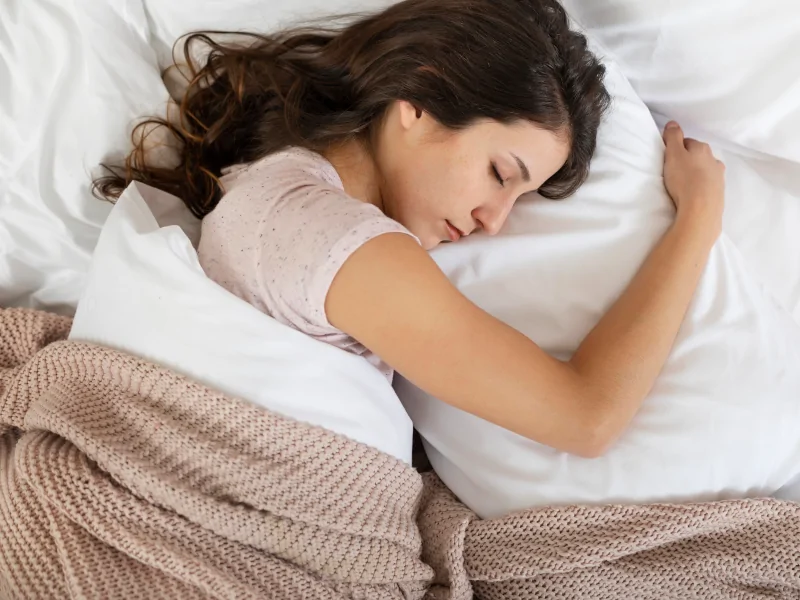
Signs you could be struggling with Anxiety
Excessive worrying
Regular excessive, uncontrollable, and usually unjustified worry about routine day-to-day issues as well as other aspects of life including work, health, effort challenges, family and finances is a hallmark symptom of generalised anxiety disorder, which is the most common anxiety condition.
Restlessness or feeling on edge
Feeling restless or on edge is like having a constant sense of inner tension or nervous energy. You might feel as if you can’t sit still, your mind won’t slow down, or your body feels tense, jumpy, or fidgety. Even when there’s nothing specific causing stress, you might feel as if something is about to happen, making it hard to fully relax or focus. This feeling can make everyday tasks difficult and exhausting, because your body and mind are always “on alert.”
Difficulty concentrating
Difficulty concentrating or your mind going blank feels like you’re constantly distracted or unable to focus clearly on tasks or conversations. You might find yourself reading or listening but not actually absorbing the information. It can feel as if your thoughts are scattered or slipping away, making it challenging to complete even simple activities. Sometimes, you may experience moments where your mind suddenly feels empty, almost like a mental “freeze,” making decisions or answering questions harder than usual. This experience is common with anxiety and can be frustrating.
Irritability
Irritability is when you feel easily annoyed, frustrated, or impatient, even by small things that normally wouldn’t bother you. It might seem like you’re snapping at people more often, feeling short-tempered, or getting upset quickly without fully understanding why. This feeling can be uncomfortable, as if your nerves are constantly on edge, making interactions with others or dealing with daily tasks more difficult. It’s a common symptom of anxiety and often signals that your mind and body are feeling overwhelmed or stressed.
Muscle tension or aches
Muscle tension or aches from anxiety can feel like your muscles are constantly tight or strained, as if you’re always “on guard.” You might notice soreness, stiffness, or even aches in your neck, shoulders, back, or jaw, often without any clear physical cause. It can feel like you’ve been carrying a heavy load or holding tension in your body all day, even when you’re not physically active. This constant muscle tightness can make you uncomfortable, tired, or drained, and may contribute to headaches or difficulty relaxing.
Fatigue or tiredness
Fatigue or tiredness related to anxiety is a deep feeling of exhaustion or low energy that doesn’t go away easily, even after rest. You might find yourself waking up already feeling drained, or struggling to get through the day because simple tasks seem much harder or more tiring than usual. This fatigue can feel both physical, like your body is heavy and sluggish, and mental, as though your mind is foggy or slow to respond. Anxiety often keeps your mind and body in a state of high alert, which can use up a lot of energy, leaving you consistently tired.
Rapid heartbeat or palpitations
Rapid heartbeat or palpitations from anxiety can feel like your heart is suddenly racing, fluttering, or pounding hard in your chest. You might feel as if your heart skipped a beat, or it’s beating faster and stronger than normal, even when you’re at rest. Sometimes, you might become aware of your heartbeat in situations where you’d normally not notice it at all. These sensations can be alarming and uncomfortable, making you feel nervous or worried that something is physically wrong. But it’s important to know they’re a common way your body reacts to anxiety, signalling that you’re experiencing stress or tension.
Shortness of breath or tightness in the chest
Shortness of breath or tightness (also known as dyspnoea) in the chest from anxiety can feel like it’s hard to take a deep breath, or like you’re not getting enough air, even when you try. You might feel like there’s a weight on your chest, making it feel tight, squeezed, or uncomfortable. It can come on suddenly and may make you feel panicked or worried that something is wrong with your breathing or your heart. This feeling is common during anxiety and is often caused by the body’s natural “fight or flight” response. It doesn’t mean you’re in physical danger, but it can feel very real and scary.
Gastrointestinal problems
Gastrointestinal problems from anxiety can feel like an upset stomach, butterflies, or knots in your belly. You might experience nausea, bloating, stomach cramps, or even feel like you need to use the bathroom more often. Some people also deal with heartburn, diarrhoea, or constipation when they’re anxious. These issues happen because anxiety can affect how your stomach and digestive system work, especially when you’re stressed or nervous. It’s your body’s way of reacting to worry or tension, and while it can be uncomfortable, it’s a common and manageable part of anxiety.
Sleep disturbances
Sleep disturbances from anxiety can feel like your mind won’t switch off at night. You might lie in bed with racing thoughts, worrying about things that happened during the day or what might happen tomorrow. It can be hard to fall asleep, or you may wake up often during the night and struggle to fall back asleep. Some people wake up too early and can’t get the rest they need.
Even if you do sleep, it might not feel restful, and you may wake up feeling tired or drained. Anxiety can keep both your body and mind in a state of alertness, making it tough to relax enough for quality sleep.
Treatment for Anxiety with Dr. Dipesh Mistry, anxiety specialist
Dr Mistry brings together broad experience and a patient centred approach for treatment of your anxiety. This includes a track record for helping many patients overcome anxiety, including difficult to treat anxiety, and anxiety that is occurring in the context of a sleep disorder.
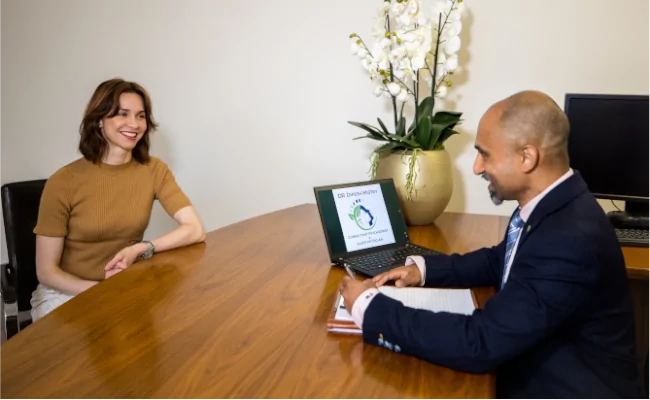
Assessment with Dr Mistry
You can look forward to a warm welcome to one of Dr Mistry’s central London clinics. Dr Mistry will take a detailed clinical history to explore the nature and severity of your anxiety symptoms, any triggers, as well as how this is impacting on your day-to-day functioning and quality of life.
There will be questions about your medical and surgical history, medications you are taking as well as lifestyle. Some people have a family history of anxiety, and so Dr Mistry will be asking if you have any relatives who might also be affected by anxiety disorders.
Different types of anxiety disorders Dr Dipesh Mistry can treat
Dr. Dipesh Mistry provides expert treatment for a range of anxiety disorders, helping individuals manage their symptoms and regain control of their lives. Below are some of the common anxiety-related conditions he specialises in treating:
- Generalised anxiety disorder (GAD)
- Panic disorder
- Agoraphobia
- Specific phobias such as claustrophobia
- Social anxiety disorder
- Health anxiety such as hypochondriasis (also known as hypochondria)
- Obsessive-compulsive disorder (OCD)
- Post traumatic stress disorder (PTSD)
Anxiety and sleep statistics
Individuals with anxiety show a higher prevalence of sleep complaints. The exact nature of the sleep disturbance i.e. poor sleep quality, insufficient sleep quantity and sleep structure alterations may vary across different anxiety disorders.
Generalised anxiety disorder and sleep
Between 60 and 70% of people suffering from generalised anxiety disorder complaining of difficulties with sleeping.
Panic disorder and sleep
Up to 70% of people with panic disorder struggle with falling asleep and up to 90% report disrupted sleep quality.
Social anxiety and sleep
People with social anxiety have been found to have a 3-4 fold increase in the likelihood of reporting sleeping difficulties.
Obsessive-compulsive disorder and sleep
People with obsessive-compulsive disorder have shorter total sleep time as well as a higher prevalence of delayed sleep phase disorder.
Post-traumatic stress disorder and sleep
Disturbed sleep is very common in people with post-traumatic stress disorder. Up to 91% of people with post-traumatic stress disorder suffer from disturbed sleep.
The vicious cycle of anxiety and insomnia
Worrying about the future, overthinking events from the day, or fearing you won’t fall asleep can keep you mentally alert, making it harder to drift off.
Anxiety activates your “fight-or-flight” response, which causes physical symptoms like a rapid heartbeat, shallow breathing, and muscle tension, all of which are not conducive to sleep and can make it hard to relax.
Some people develop “sleep anxiety,” where the worry about not being able to sleep actually prevents sleep. The more pressure you feel to fall asleep, the harder it becomes.
Even if you manage to fall asleep, anxiety can lead to frequent awakenings or lighter sleep, preventing you from reaching the deeper, more restorative stages of sleep.
Lack of sleep then heightens anxiety levels the next day, reducing your ability to cope with stress and making it more likely that you’ll have trouble sleeping again, creating a vicious cycle of anxiety and insomnia.
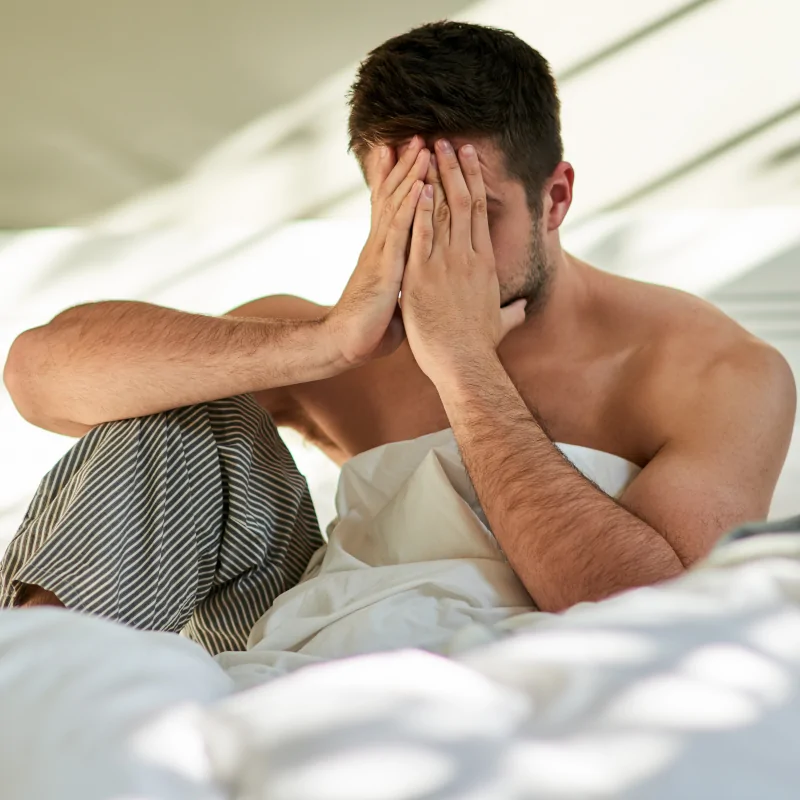
Caffeine and anxiety
Caffeine is a stimulant found in coffee, tea, energy drinks, and chocolate. While it can help you feel more awake and alert, too much caffeine can make anxiety worse, especially if you’re sensitive to it. Caffeine at doses roughly equivalent to 5 cups of coffee can induce panic attacks in people who have panic disorder.
Caffeine stimulates your nervous system, which can lead to jitters, a racing heart, restlessness, and trouble sleeping. These symptoms are very similar to anxiety and can make it feel more intense. For some people, even a small amount of caffeine can trigger or worsen anxiety, especially if they already feel stressed or anxious.
Caffeine can disrupt sleep, and lack of sleep can make anxiety worse the next day, creating a cycle of fatigue and increased anxiety. Some people process caffeine more slowly, meaning it stays in their system longer, causing prolonged anxiety-like symptoms.
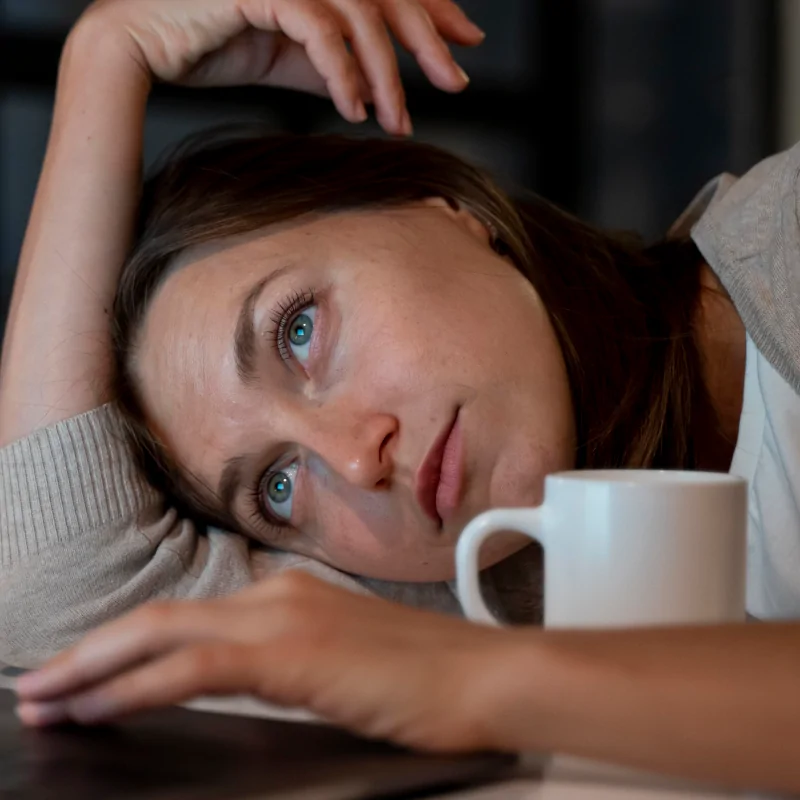
Reach out to book your consultation with Dr Mistry and start your journey toward a calmer, more confident you. Your peace of mind is possible, and it starts here.
Why choose Dr Mistry?
Personalised care: Dr Mistry appreciates that his patients may have certain preferences in relation to how their anxiety is managed. He therefore offers a combination of pharmacological and non-pharmacological treatment options.
Track record: Dr Mistry has helped many patients overcome their anxiety, this includes people who have been informed that they have “treatment resistant anxiety”. Dr Mistry has also helped people who have developed anxiety that exists alongside a sleeping disorder.
Sensitive approach: Dr Mistry understands that living with anxiety can be exhausting and isolating. Even reaching out can feel overwhelming. Dr Mistry offers a safe, supportive and non-judgemental space where you can talk openly, feel heard and collaborate in order to find a way to overcome your anxiety.

Where to find us
Dr Mistry has two central London locations you are able to visit.
Ankha,
17 Elystan Street
Chelsea
SW3 3NT
150 Harley Street
London
W1G 7LQ
Online consultations
We also offer convenient online consultations for those who prefer to meet with our insomnia specialists from the comfort of their own homes.
